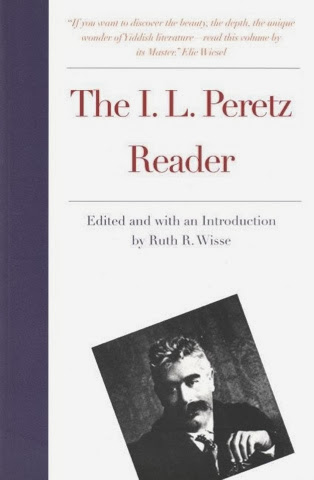This is my second post on one of the central figures of the Yiddish literary tradition, I.L. Peretz. (There is background information on him and Yiddish literature in my prior post on him). I admit I like short stories about cats so I decided to read next his "The Pious Cat". Great writer or not no one gets by with a bad cat story on The Reading Life.
"The Pious Cat" is just a simple fable like story about a mischievous cat and a canary that conveys some interesting points about human nature. The canary is kept in a cage. The cat likes to kill and bring home birds. Every time he does his people hit him. They really hit him when he tries to open the cage for the canary. He keeps trying to figure out what the people want. As it closes I think Peretz is making a comment about the nature of governments.
I will next read his "The Golem".
My thanks to Yale University for a very generous gift of books







2 comments:
The point of "The Pious Cat," in context of Peretz's life, isn't about government. It's about how the heavy burden of piety in a traditional, Torah-observant Jewish setting can alone suffocate someone to death through fear of ever making an error.
The cat has, at the end of the story, developed to represent a surrogate for the rabbinical authorities in Eastern Europe, threatening death and eternal damnation, by means of reprimand, to those who dare to act contrary to the demands of the Torah as those rabbis interpreted it.
Anonymous commentator- thanks for your very interesting comment. I do not think the story should be only seen in a biographical context but in a broader context of the politics of the era. This gives the story a wider and deeper meaning, in my unscholarly opinion.
Post a Comment